Star Wars: Andor blasted back onto Disney+ for its second season, dropping new episodes weekly and reminding everyone just how compelling character-driven science fiction can be. The series sets a high bar for Star Wars projects, trading lightsaber duels for tense espionage, complex political maneuvering, and a gritty look at the seeds of rebellion growing in the shadow of the Empire. Andor proved that Star Wars could deliver prestige television, focusing on morally gray characters, intricate plotting, and themes that resonate far beyond a galaxy far, far away. That’s thanks to creator Tony Gilroy, who offered a mature, patient, and ultimately thrilling expansion of the universe, hooking viewers who appreciate sci-fi that isn’t afraid to explore the darker corners of its characters and setting. With Cassian Andor’s (Diego Luna) journey reaching its conclusion, fans are again immersed in that specific brand of high-stakes, intelligent storytelling.
Videos by ComicBook.com
If the return of Andor has you craving more science fiction that offers more than just spectacle, you’re in the right place. The shows on this list represent some of the best prestige sci-fi television has to offer, series that prioritize complex narratives, deep character studies, thought-provoking themes, and immersive world-building. Here’s our picks for seven prestige sci-fi shows that deserve your attention if you like Andor.
Foundation
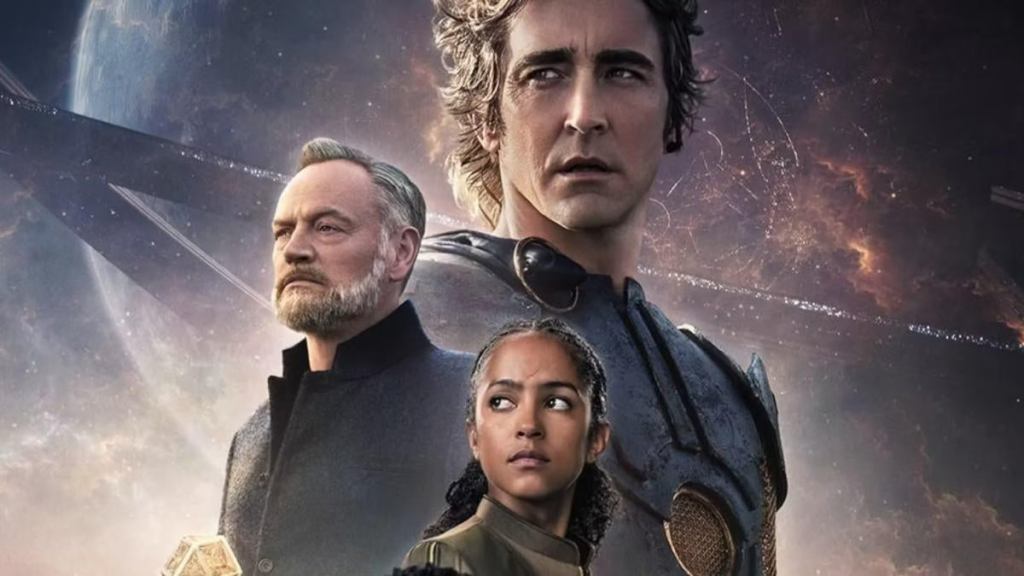
Adapting Isaac Asimov’s seminal Foundation series was long considered an impossible task, as the story spans millennia and deals with complex concepts like psychohistory. Apple TV+’s ambitious series tackles the challenge head-on, delivering a visually stunning epic that captures the immense scope of Asimov’s vision while forging its own path. The story follows Hari Seldon (Jared Harris), a brilliant mathematician who predicts the imminent fall of the Galactic Empire and creates the Foundation, a colony of artisans and engineers tasked with preserving knowledge to shorten the ensuing dark age. His path intertwines with figures like the gifted Gaal Dornick (Lou Llobell) and the resourceful Salvor Hardin (Leah Harvey), generations apart but linked by destiny.
Foundation excels at depicting the vastness of space and time, contrasting the decaying opulence of the Empire, personified by the rotating Genetic Dynasty of Brother Day (Lee Pace), with the struggles of those trying to build something new on the fringes. The show grapples with big ideas about determinism versus free will, the cycles of history, and the power of belief, all wrapped in a package filled with political intrigue, scientific wonders, and moments of genuine human drama.
The Expanse
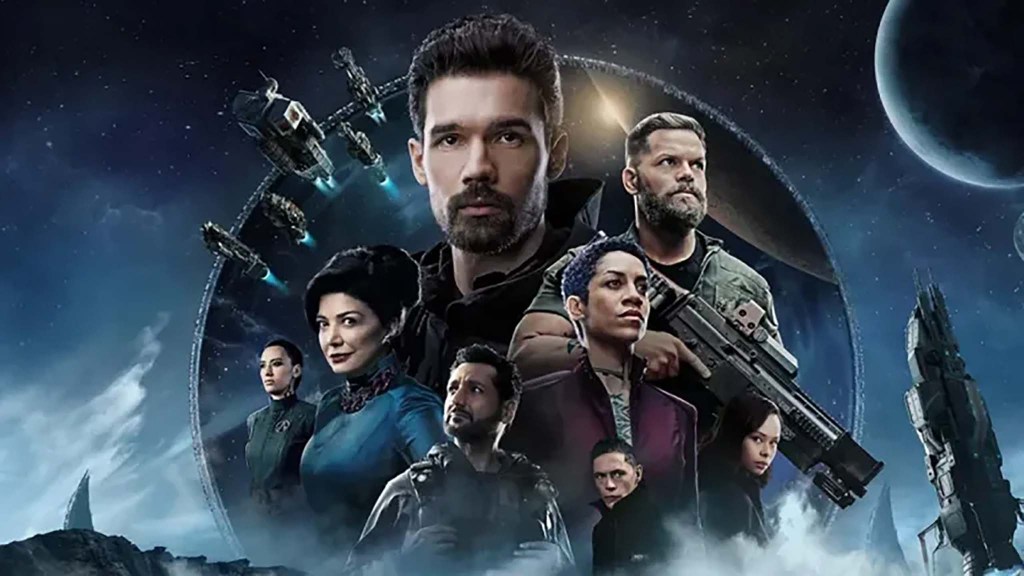
Often hailed as one of the most realistic and politically intricate science fiction shows ever made, The Expanse started on SYFY before finding a home on Prime Video, adapting the beloved book series by James S.A. Corey. Set a few centuries in the future, where humanity has colonized the solar system, the show depicts rising tensions between Earth, a powerful independent Mars, and the exploited inhabitants of the Asteroid Belt (Belters). Caught in the middle are the crew of the salvaged Martian gunship, the Rocinante, led by the idealistic James Holden (Steven Strait) and including the brilliant Belter engineer Naomi Nagata (Dominique Tipper) and the stoic mechanic Amos Burton (Wes Chatham).
What begins as a missing person investigation quickly spirals into a system-wide conspiracy involving corporate greed, political brinkmanship masterminded by figures like UN executive Chrisjen Avasarala (Shohreh Aghdashloo), and the discovery of an alien protomolecule that threatens to change humanity’s future forever. The Expanse earns its prestige label through its commitment to scientific accuracy (realistic space travel physics is a key feature), complex character development where loyalties are constantly tested, and a nuanced exploration of political conflict, tribalism, and the human cost of expansion.
Battlestar Galactica
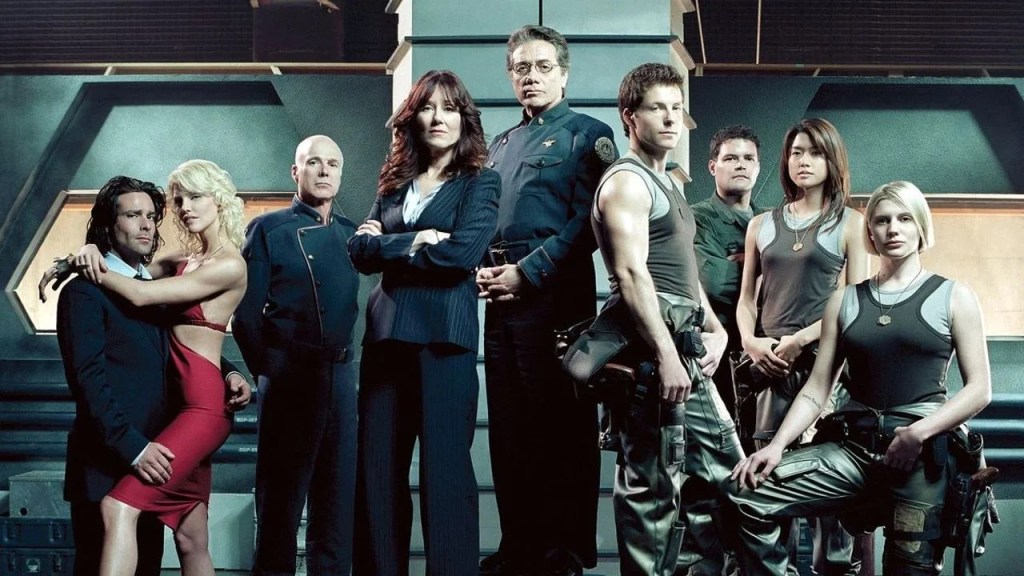
Ronald D. Moore’s 2004 reimagining of Battlestar Galactica remains a landmark achievement in television science fiction, transforming a campy ’70s series into a gritty, intense post-apocalyptic drama. Following a devastating surprise attack by the Cylons — sentient machines created by humans — the last remnants of humanity flee across space aboard a ragtag fleet, protected by the aging warship Galactica. Led by the stoic Commander William Adama (Edward James Olmos) and the pragmatic civilian President Laura Roslin (Mary McDonnell), the survivors search for the mythical planet Earth while battling dwindling resources, internal political strife, and the terrifying knowledge that Cylon agents, indistinguishable from humans, walk among them.
[RELATED: 10 Sci-fi Movies That Still Need a Sequel Years Later]
Battlestar Galactica masterfully blended thrilling space combat with complex character arcs, tackling heavy themes like genocide, torture, religious fundamentalism, and the nature of humanity itself. The paranoia fueled by the hidden Cylons created unbearable tension, while characters like the hotshot pilot Kara “Starbuck” Thrace (Katee Sackhoff) and the morally compromised scientist Gaius Baltar (James Callis) underwent profound, often painful transformations. Its raw, documentary-style visuals and willingness to explore dark, relevant issues cemented its status as essential prestige sci-fi.
Severance
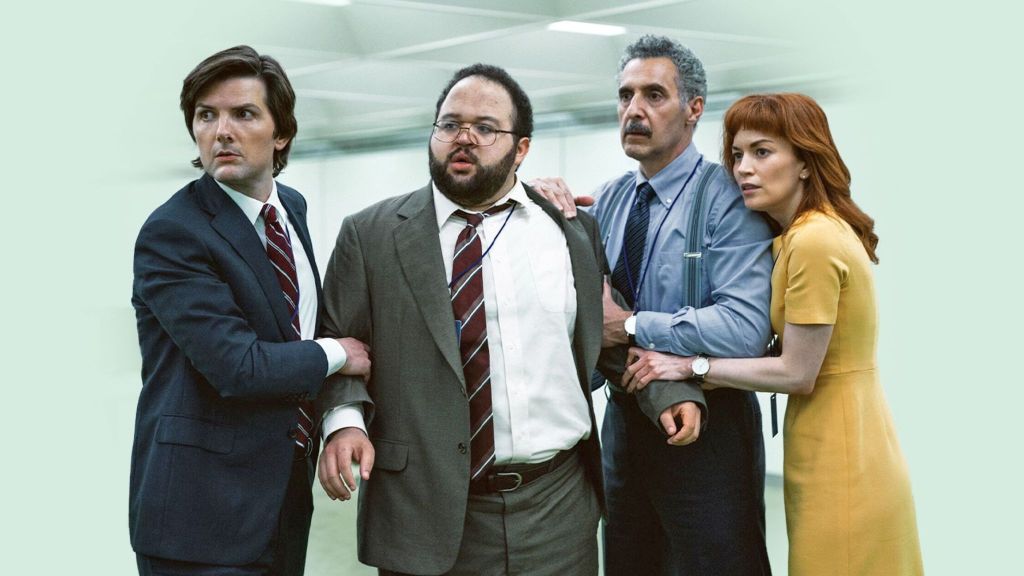
Apple TV+’s Severance arrived as a chillingly original and darkly funny psychological thriller wrapped in a high-concept sci-fi premise. The series introduces Lumon Industries, a mysterious corporation where some employees undergo a procedure called “severance,” surgically dividing their memories between their work lives (“innies”) and their personal lives (“outies”). Mark Scout (Adam Scott) leads a team of “severed” office workers whose innies perform monotonous data refinement tasks with no knowledge of their outside selves, while their outies remain blissfully unaware of their work existence. When new recruit Helly Riggs (Britt Lower) rebels against her confinement, it sets off a chain reaction challenging the entire system.
Directed largely by Ben Stiller, Severance uses its unsettling concept to explore themes of corporate control, work-life balance, identity, grief, and conformity with unnerving precision. The sterile, retro-futuristic aesthetic of Lumon’s severed floor creates a uniquely oppressive atmosphere, heightened by standout performances from Scott, Lower, and Patricia Arquette as the enigmatic manager Harmony Cobel. It’s a mind-bending mystery box show that balances its philosophical questions with sharp satire and genuinely suspenseful plotting, making it utterly compelling.
Silo
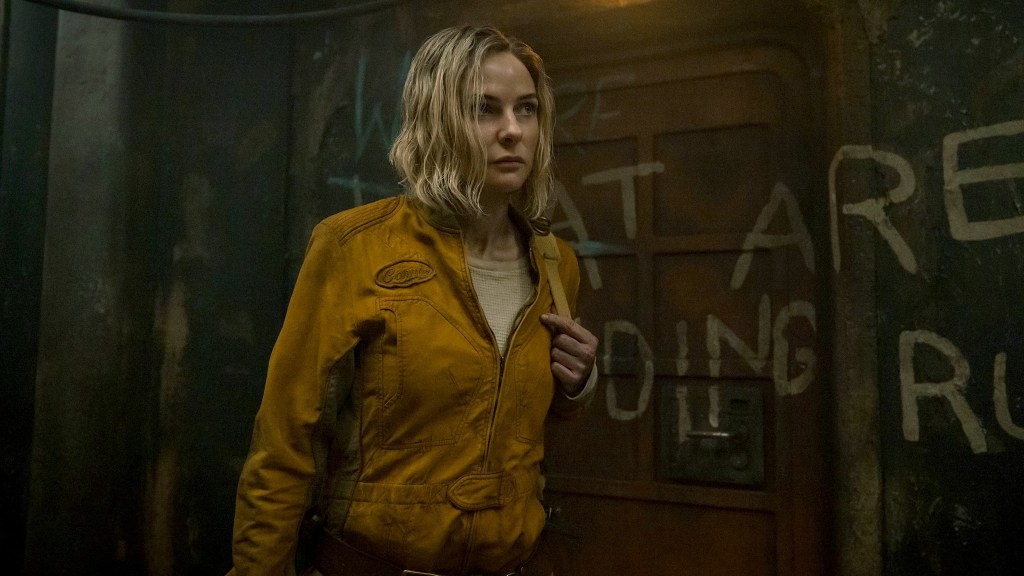
Based on Hugh Howey’s bestselling book series, Apple TV+’s Silo presents a captivating dystopian mystery set within a massive underground structure housing the last remnants of humanity. Thousands live within the confines of the Silo, adhering to strict rules and believing the outside world is toxic and deadly. Furthermore, artifacts and knowledge of the past are forbidden and controlled by the authoritarian Judicial Department. When Sheriff Holston Becker (David Oyelowo) breaks the ultimate taboo by asking to go outside, engineer Juliette Nichols (Rebecca Ferguson) is unexpectedly thrust into his role, uncovering secrets that challenge the very foundation of their society and the powerful figures who maintain order.
Silo excels in creating a claustrophobic, lived-in world brimming with secrets and social tension. The central mystery surrounding the Silo’s true purpose and the nature of the outside world drives the narrative forward, propelled by Ferguson’s determined performance as Juliette. The show skillfully blends elements of mystery, political thriller, and character drama, exploring themes of control, truth, rebellion, and the human need for hope against overwhelming odds within its contained, atmospheric setting.
Dark
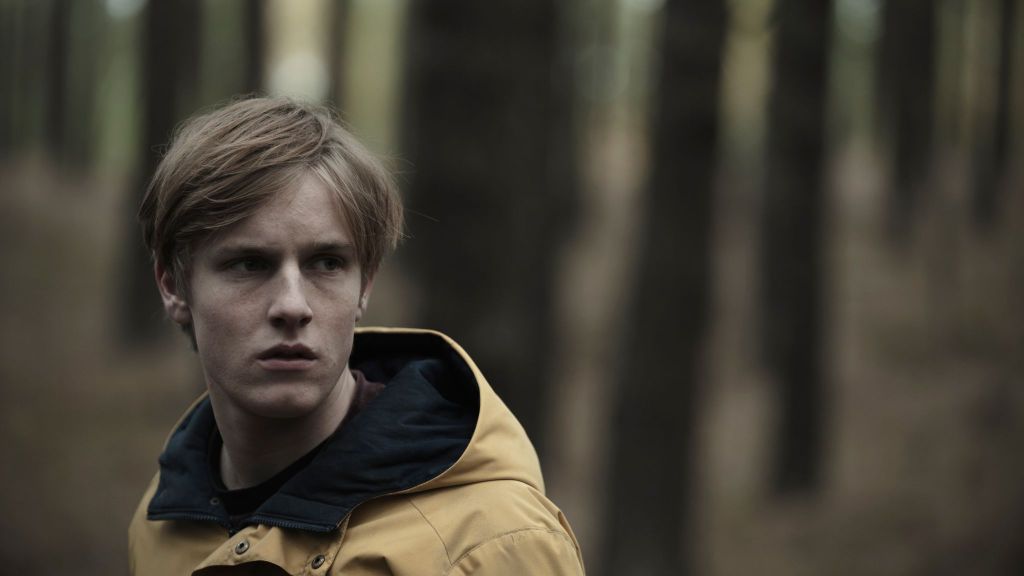
Netflix’s first German-language original series, Dark, is a mind-bending masterpiece of intricate plotting and existential dread. Set in the small town of Winden, the disappearance of a child echoes a similar event from decades prior, unraveling a complex web of secrets connecting four estranged families across multiple timelines. Dark evolves into a sprawling temporal paradox involving wormholes, predestination paradoxes, and generations caught in a seemingly inescapable cycle of tragedy and manipulation, centered around figures like Jonas Kahnwald (Louis Hofmann/Andreas Pietschmann), Martha Nielsen (Lisa Vicari), and Ulrich Nielsen (Oliver Masucci).
Dark demands close attention, weaving together character arcs and plot threads across 1921, 1953, 1986, 2019, and beyond with astonishing precision. It’s a show that trusts its audience to keep up with its complex narrative structure, rewarding them with profound philosophical questions about time, fate, free will, and the weight of family legacies. The moody atmosphere, strong performances, and meticulously crafted story make Dark an unforgettable, challenging, and deeply rewarding sci-fi experience.
Counterpart
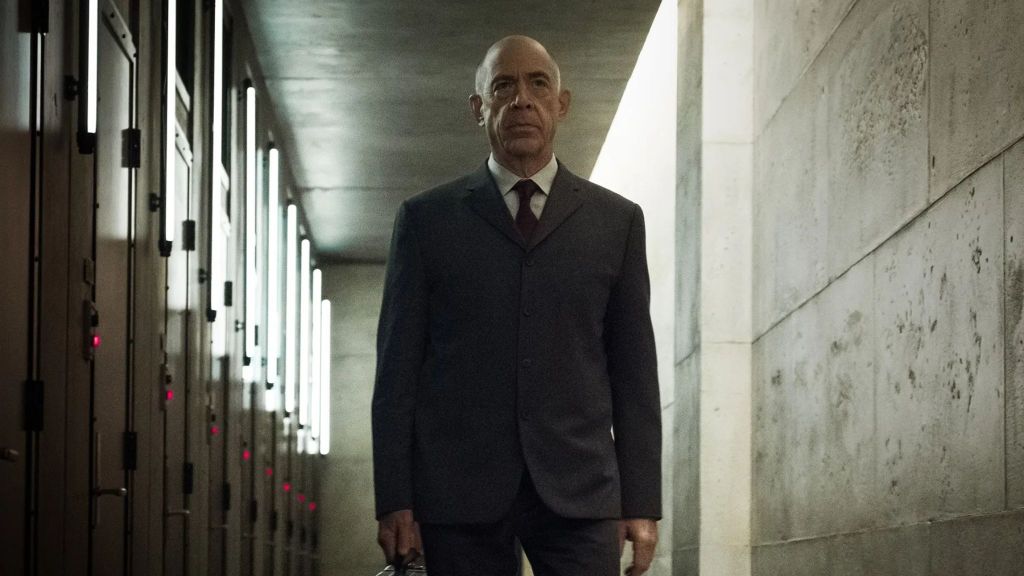
Blending espionage thrills with a high-concept science fiction premise, Starz’s Counterpart offers a brilliant showcase for J.K. Simmons in a dual role. Set in contemporary Berlin, the story follows Howard Silk (Simmons), a low-level bureaucratic drone working for a secretive UN agency, unaware that his organization guards a crossing point to a parallel Earth created during a Cold War experiment. His mundane life is shattered when his counterpart from the “Prime” world — a ruthless field agent also played by Simmons — crosses over, revealing a decades-long cold war simmering between the two realities, filled with spies, assassins, and divergent histories.
Counterpart uses its parallel worlds concept to explore fascinating themes of identity, nature versus nurture, and the paths not taken, anchored by Simmons’ incredible performances as the two Howards. The spycraft elements are tense and well-executed, creating a paranoid atmosphere where trust is scarce, and allegiances are constantly shifting. Olivia Williams also shines playing the wives of both Howards, Emily Burton Silk. It’s a smart, character-driven thriller that leverages its sci-fi conceit for compelling human drama and intricate plotting.
Which of these prestige sci-fi shows will you be diving into next? Let us know in the comments!








